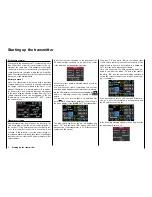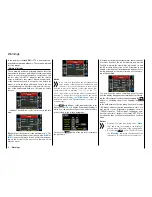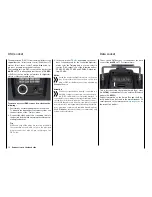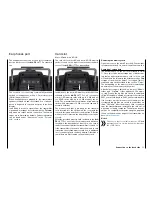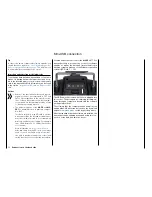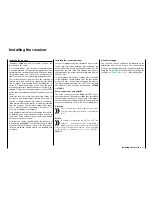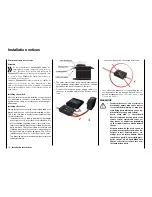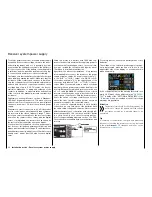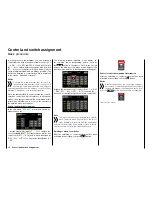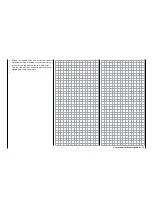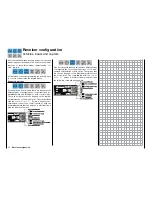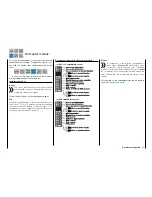
• Once the battery is connected or the
motor is running, always maintain a
safe distance from the hazard area
posed by the propulsion system!
• During the programming process,
make sure that a connected gas en-
gine or electric motor cannot acciden-
tally start. Disconnect the fuel supply
or drive battery beforehand.
Notices
• Protect all equipment from dust, dirt, moisture
and other foreign parts. All equipment must be
protected from vibration as well as excessive
heat or cold. The models may only be oper-
ated remotely in normal outside temperatures
such as from -10°C to +55°C.
• Avoid shock and pressure. Check for dam-
age to the housing and cables. Devices that
become wet or damaged may not be used
anymore even if they dry out.
• Only use the components and spare parts
that we recommend. Always use matching,
original
Graupner
plug-in connections of the
same design and material.
• When running the cables, make sure that they
are not excessively tight, kinked, or severed. A
sharp edge can also damage insulation.
• Make sure that all of the plug-in connections
are tight. When disconnecting the plug-in
connections, do not pull the cables.
• No changes may be made to the devices. This
will void permission to use the device along
with the warranty. If appropriate, send the
relevant device to the responsible
Graupner
Service Center
Range and function test
Before every use, check the range and functioning.
Firmly secure the model, and make sure that no one
is nearby.
Perform at least one complete function test on the
ground, and run through an entire flight simulation to
determine if there are any problems with the system
or the programming of the model. Always follow the
instructions under
Range test
.
WARNING
If the range and function test as well as
the flight simulation are not performed
completely and conscientiously, malfunc-
tions may go unrecognized and reception may be
lost which could cause a loss of control or even
cause the model to crash. This can result in major
property damage and/or personal injury.
17
Installation instructions
Servo noise filters for extension cables
No.
1040
The servo noise filter is required when using lon-
ger-than-usual servo cables. The filter is connected
directly to the receiver output. In critical cases, a sec-
ond filter can be placed on the servo.
Electrical ignitions
Ignition systems of gas engines also generate inter-
ference that can impair the functioning of remote con-
trols.
The power for electrical ignitions should always be
from a separate source.
Only use interference-suppressed spark plugs and
spark plug connectors and shielded ignition cables.
The receiver should be at a sufficient distance from
the ignition system.
Model function
WARNING
• Never fly the model over observers or
other pilots. Never endanger people
or animals. Never fly close to power
lines. In addition, never operate your
model close to locks and open nauti-
cal traffic. Do not operate your model
on open roads, highways, paths, pub-
lic walkways, etc.
• Never turn off the transmitter while
operating the model! If this nonethe-
less accidentally happens, do not pan-
ic, and wait until the transmitter dis-
play goes dark which indicates that
the transmitter is completely off. This
will take at least three seconds. Af-
ter this time, turn the transmitter on
again.
Summary of Contents for mz-24 PRO
Page 13: ...13 Personal notes...
Page 19: ...19 Personal notes...
Page 37: ...37 Personal notes...
Page 59: ...Touch 59 Base menu Model selection...
Page 79: ...79 Personal notes...
Page 89: ...89 Personal notes...
Page 115: ...115 Personal notes...
Page 153: ...Helicopter model function menus Common function menus 153 Personal notes...
Page 169: ...169 Personal notes...
Page 187: ...187 Personal notes...
Page 199: ...199 Personal notes...
Page 207: ...Fixed wing model function menus System menus 207 Personal notes...
Page 211: ...211 Personal notes...
Page 219: ...219 Personal notes...
Page 237: ...237 Personal notes...
Page 238: ...238 Personal notes...
Page 239: ...239 Personal notes...


